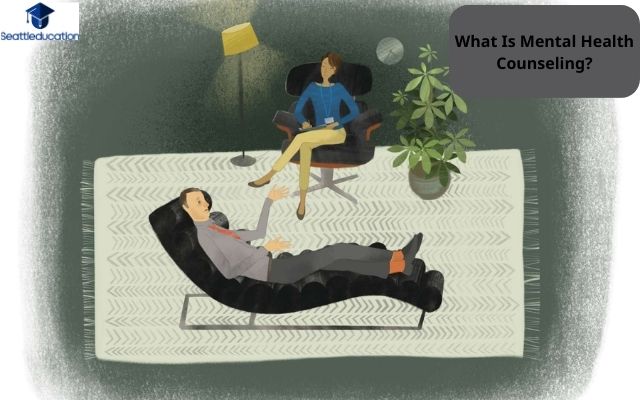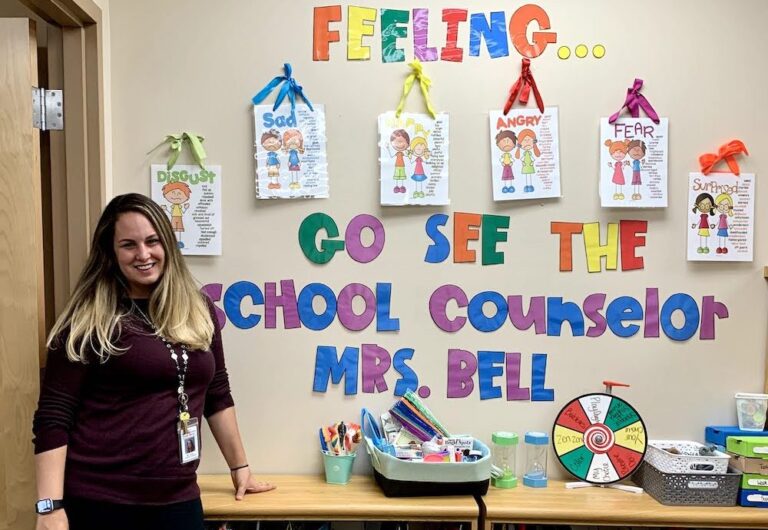School Counseling Vs Mental Health Counseling: Best Comparison
School Counseling Vs Mental Health Counseling: When it comes to mental health counseling, there is often a lot of confusion about the differences between school counseling and traditional mental health counseling. As someone who has worked in both fields, I can tell you that the two are quite different.
In this article, I’ll discuss how they differ from one another so you can determine which type of counselor would be best for your needs.
The biggest difference between school counselors and mental health counselors lies in their approach to helping people with emotional issues. School counselors focus more on academic success while also providing support for personal struggles; whereas, mental health counselors provide comprehensive care plans tailored specifically to each individual’s unique situation.
While these two types of professionals may work together in some circumstances, understanding the key distinctions will help you make an informed decision when selecting a counselor.
Let’s get started!
What Is School Counseling?
I’m sure you have heard of school counseling, but what exactly is it? School counseling focuses on helping students acquire the skills and knowledge they need to succeed in their education. It also helps them build good relationships with teachers and develop positive attitudes towards learning. Through school counseling, students receive advocacy, college planning assistance, crisis intervention services, and career guidance.
As a school counselor I am always looking for ways to help my students achieve success academically and socially. I want to foster an environment that encourages healthy dialogues between faculty and student body so everyone can be on the same page when it comes to educational goals.
My role as a counselor involves developing individualized instructions plans that address any difficulties or concerns each student may have. This includes assisting with virtual school counseling jobs, providing resources for financial aid opportunities, resolving conflicts between peers or adults at school, and teaching life skills such as problem solving techniques.
School counselors play an important part in helping young people prepare for their future by giving advice about courses to take or extracurricular activities to pursue that will make them stand out during college admissions processes.
Additionally, we work in partnership with parents/guardians and other professionals within the community to ensure our students are receiving comprehensive support throughout their academic journey. Moving forward it’s now time to explore what mental health counseling is all about…
What Is Mental Health Counseling?
It’s time to explore what mental health counseling is! Mental health counseling provides support and guidance for individuals dealing with emotional distress. It can help them develop self care techniques, regulate their emotions, and use coping strategies in order to work through difficulties they may be facing.
Furthermore, mental health counselors provide trauma informed care that helps reduce the stigma associated with seeking out therapeutic services.

Mental health counselors bring a holistic lens when working with clients by considering not only psychological factors but also social and environmental ones too. They create treatment plans tailored to each individual that includes both short-term goals as well as long-term objectives.
Counselors often utilize cognitive behavior therapy (CBT) tools such as mindfulness, relaxation exercises, journaling, etc., depending on the needs of the client. Additionally, other evidence based approaches like Dialectical Behavioral Therapy (DBT), Acceptance Commitment Therapy (ACT), or Eye Movement Desensitization Reprocessing (EMDR) might be utilized if appropriate for the situation.
The purpose of mental health counseling is ultimately to empower people towards achieving greater wellness and stability in life. Through this process it becomes possible to recognize patterns of thought/behavior which are then addressed so meaningful transformation can occur over time.
With the right understanding and support from a counselor it’s possible to make strides toward a healthier lifestyle – mentally & physically! Now let’s move on to discussing some of the benefits of school counseling…
Benefits Of School Counseling
I believe school counseling is invaluable for helping students succeed. Developing relationships with the students and being there to offer support in times of need can make all the difference in their education experience. School counselors are equipped to promote social emotional learning, self regulation skills, and crisis management – all key components when it comes to a student’s well-being.

School counselors provide an array of services that help children navigate through academic challenges as they arise, such as difficulty understanding course material or advocating for themselves within the classroom environment. They also act as mentors, offering advice on how to handle stressful situations like bullying or dealing with emotions like anger or grief.
In addition, school counselors collaborate with teachers and administrators on important topics like college readiness or career planning. The impact of school counselors extends beyond academics; by building meaningful connections with their students, these professionals play a pivotal role in creating positive environments where young people feel safe and supported.
This helps foster a sense of belonging which leads to improved motivation and better decision making skills – allowing them to reach their full potential both inside and outside of the classroom setting. With this foundation laid out before them, students will be more prepared than ever to reap the rewards offered from mental health counseling services.
Benefits Of Mental Health Counseling
I believe that mental health counseling can be hugely beneficial to many individuals. It provides an opportunity for people to explore their emotions, understand more about themselves and build better relationships with others.
Mental health counselors are also trained in social emotional learning (SEL) which helps clients become more self-aware of their behaviors, thoughts and feelings. Through this knowledge, they can develop effective coping skills and strategies for stress management as well as techniques for improving self esteem and building a healthier lifestyle.
Aside from SEL, mental health counselors can offer additional support such as coaching on self care practices like healthy eating habits or exercise routines. These may help reduce distress levels while increasing positive reinforcement through rewards systems or goal setting plans. Clients will have access to individualized guidance tailored specifically to their own needs so that they can gain greater insight into how they think and feel in order to make lasting changes in their lives.
By equipping people with the necessary tools to manage personal struggles, mental health counselors give them the chance to lead happier and more meaningful lives – something that no one should ever have to go without.
As we move forward, it’s important that everyone has access to quality care when needed so that all individuals regardless of socioeconomic status or any other factor are able to receive the same level of support. To this end, I’m hopeful that our society continues making progress towards achieving these goals.
With greater awareness around mental wellbeing comes increased understanding which leads us closer towards creating an accepting environment where everyone is respected equally, both emotionally and mentally alike.
Challenges Of School Counseling
I’ve discussed the benefits of mental health counseling, which can help promote social emotional learning, reduce stigma, provide crisis management and trauma informed care, as well as increase multiculturalism awareness. But school counselors face some unique challenges that make their job more difficult.
First is the fact that most schools are underfunded when it comes to mental health services for students. This means they often have to work with limited resources in order to meet the needs of all students. It also means there’s less time available for counselors to spend one-on-one with each student or to build relationships with them and their families.
Another challenge is that many teachers and administrators don’t understand the role of a counselor or how best to use them in their classrooms.
They may not be aware of best practices such as holistic approach to school counseling, using evidence-based interventions or connecting students with community resources. As a result, school counselors are often seen only as someone who disciplines students rather than someone who helps them develop into successful adults.
Schools must also deal with issues such as bullying, substance abuse, academic struggles and family problems on top of addressing any potential safety concerns due to external threats like violence or natural disasters. To effectively manage these situations, school counselors need specialized training so they’re prepared for whatever situation might arise.
Without this preparation, they can become overwhelmed by the complexity of their tasks and unsure of what steps should be taken next. The key to being an effective school counselor is having access to appropriate support systems and resources that enable you to address these complex issues while still maintaining your focus on helping students reach their full potential.
Challenges Of Mental Health Counseling
The challenges of mental health counseling are plentiful, and require a counselor to be well-equipped with the necessary skills. As such, there are several core components that must form part of any good practice in this field:
1) Stigma management – Mental health counselors need to be aware of potential biases or stigmas around certain topics related to mental illness. This includes being informed on how different cultural backgrounds may perceive certain behaviors differently.
2) Cultural considerations – Counselors should also have an understanding of how culture can influence clients’ experiences regarding their emotional regulation or self awareness techniques when dealing with trauma. To ensure effective practices, it is important for them to stay up-to-date on current knowledge within relevant fields and incorporate culturally sensitive approaches into their work accordingly.
3) Trauma Informed Practices – Lastly, mental health counselors should strive to understand the impact traumatic events can have on individuals. This means they must focus on developing evidence based strategies which promote healing by providing a safe environment where clients feel comfortable enough to express themselves without fear or judgement.
These three key aspects illustrate just some of the complex demands placed upon those who wish to pursue a career as a mental health counselor. With these points in mind, we now move onto discussing effective counseling skills and mental health counseling..
School Counseling Vs Mental Health Counseling
I’m passionate about the difference between school counseling and mental health counseling. While both roles are focused on providing support for clients, each one has a unique set of responsibilities that may vary depending on the area in which they work.
Working with families to identify potential signs of trauma or distress, advocating for client needs within their specific setting, understanding how trauma affects learning and development, and providing resources accordingly – these are all key considerations when exploring this comparison.

One major distinction is how education requirements differ for each profession. Both counselors must have at least a master’s degree from an accredited university; however, school counselors typically hold credentials such as state licensure or certification while mental health counselors often need to become licensed by their respective states’ boards.
Additionally, most states require certified school counselors to complete continuing education coursework regularly in order to remain current in their field.
Schools also often include additional criteria such as background checks and/or drug screenings prior to hiring school counselors – especially if working with children. Although similar policies may exist for mental health settings too, it is less common due to its outpatient nature compared to other community-based programs where direct contact with vulnerable populations is more likely.
With this said, it’s clear that there are distinct differences between school counseling and mental health counseling worth considering before entering either profession. As we move forward into our discussion about educational requirements for school counselors, we should keep these points in mind so that we can make informed decisions regarding our career path choice.
Education Requirements For School Counselors
Having an understanding of the differences between virtual counselor job openings and mental health counseling is important for anyone considering a career in either field. Aspiring school counselors must also be aware of the education requirements to get into this profession.
It takes dedication, focus, and ambition to become a successful counselor, with school counselors needing specialized knowledge in peer support, cultural diversity, parent engagement, student advocacy, and career guidance.
In many states, such as California and New York, the minimum educational requirement for becoming a school counselor is typically a master’s degree in Counseling or School Psychology from an accredited university program.
Through these programs students gain experience through coursework focused on child development theories and assessment techniques as well as professional practice courses which involve internships with local schools.
Additionally, they complete supervised clinical assignments focusing on individual counseling or group therapy sessions that prepare them for their future role as counselors. Achieving licensure after graduating from one of these programs requires passing state board exams while completing post-graduate work hours under supervision before being eligible to apply for independent license status.
Becoming certified by the National Board for Certified Counselors (NBCC) provides additional credentials needed when seeking employment at most public schools. With ever changing laws regarding certifications and licenses across all fifty states it’s important to check your own state standards prior to applying to any graduate level program related to counseling.
Moving forward let’s explore what education requirements are necessary for those looking into pursuing a career in mental health counseling services.
Education Requirements For Mental Health Counselors
Getting into the world of mental health counseling is an exciting journey! To be able to help people with their psychological issues and provide them with long-term solutions can bring a sense of fulfillment.

Like many other roles in the mental healthcare industry, becoming a mental health counselor requires educational qualifications. In this section, we’ll take a look at what those education requirements for becoming a qualified mental health counselor are.
Typically, individuals looking to become certified as a mental health counselor need to hold either a master’s degree or doctoral degree in psychology, counseling, social work or one of its related fields. The course also needs to include courses on peer support skills, workplace issues and cultural competency training along with system advocacy and wellness strategies.
Additionally, most states require aspiring counselors to complete supervised fieldwork hours ranging from 500-3,000 hours depending upon the state they plan to practice in.
After completing all these educational requirements and obtaining licensing credentials from the appropriate boards, you will be well on your way towards establishing yourself as a successful mental health counselor who offers comprehensive services for clients experiencing psychological distress.
Career Opportunities For School Counselors
Having discussed the education requirements for mental health counselors, it’s now time to turn our attention to career opportunities for school counselors.
While there are certainly similarities between the two counseling roles, there are also some distinct differences that make pursuing a job as a school counselor uniquely rewarding for those who are passionate about working with children and adolescents in an educational setting.
For starters, becoming a school counselor presents unique opportunities for gaining experience. In most cases, you have access to multiple grades of students from kindergarten through high school, allowing you to build up your skillset while taking part in important work that can shape young lives.
Additionally, because schools need dedicated staff members year-round, job security is much higher than other fields which may be seasonal or cyclical in nature.
When it comes to salary expectations and budgeting resources, many school districts offer competitive salaries and benefits packages that compare favorably against other professions.
Professional networking strategies such as joining professional organizations or attending conferences can also help you stay up-to-date on best practices and new developments within the field of education that could open up additional opportunities down the line.
With all these elements combined, pursuing a career as a school counselor has many advantages worth considering when deciding upon your next step in life.
Moving forward then, let’s take a closer look at what’s involved with being a mental health counselor…
Career Opportunities For Mental Health Counselors
Being a mental health counselor is an incredibly rewarding experience. It provides the opportunity to be part of a supportive environment and engage in meaningful social interaction with clients. This type of counseling also allows for role clarity, which helps to set expectations from the beginning. The end goal is often focused on personal growth and professional development.

Mental health counselors work closely with individuals, families, couples or groups who are dealing with emotional distress caused by trauma, depression, addiction and other issues related to psychological well-being.
They assess needs through assessment tools such as interviews and questionnaires, develop treatment plans tailored to individual situations, provide therapeutic interventions like cognitive behavior therapy (CBT) or psychotherapy, and help their clients build skills for long term success.
The field of mental health counseling offers many career opportunities that can be both personally fulfilling and financially rewarding. With advances in technology, more employers are looking for professionals who have knowledge in areas such as telehealth services and virtual reality applications – giving them access to new markets they may not have otherwise been able to reach before.
Additionally, there is potential for increased job security due to recent legislative changes at the state level promoting insurance coverage for mental health services.
Conclusion
It is clear that there are both similarities and differences between school counseling and mental health counseling. Both types of counselors work to provide support for individuals, but they approach it in different ways. School counselors focus on providing guidance while mental health counselors help clients manage their emotions and behaviors.
In terms of salaries, job outlooks, and training required, each type of counselor has its own unique advantages. Ultimately, the choice between becoming a school or mental health counselor should depend on what kind of setting an individual feels most comfortable in.





